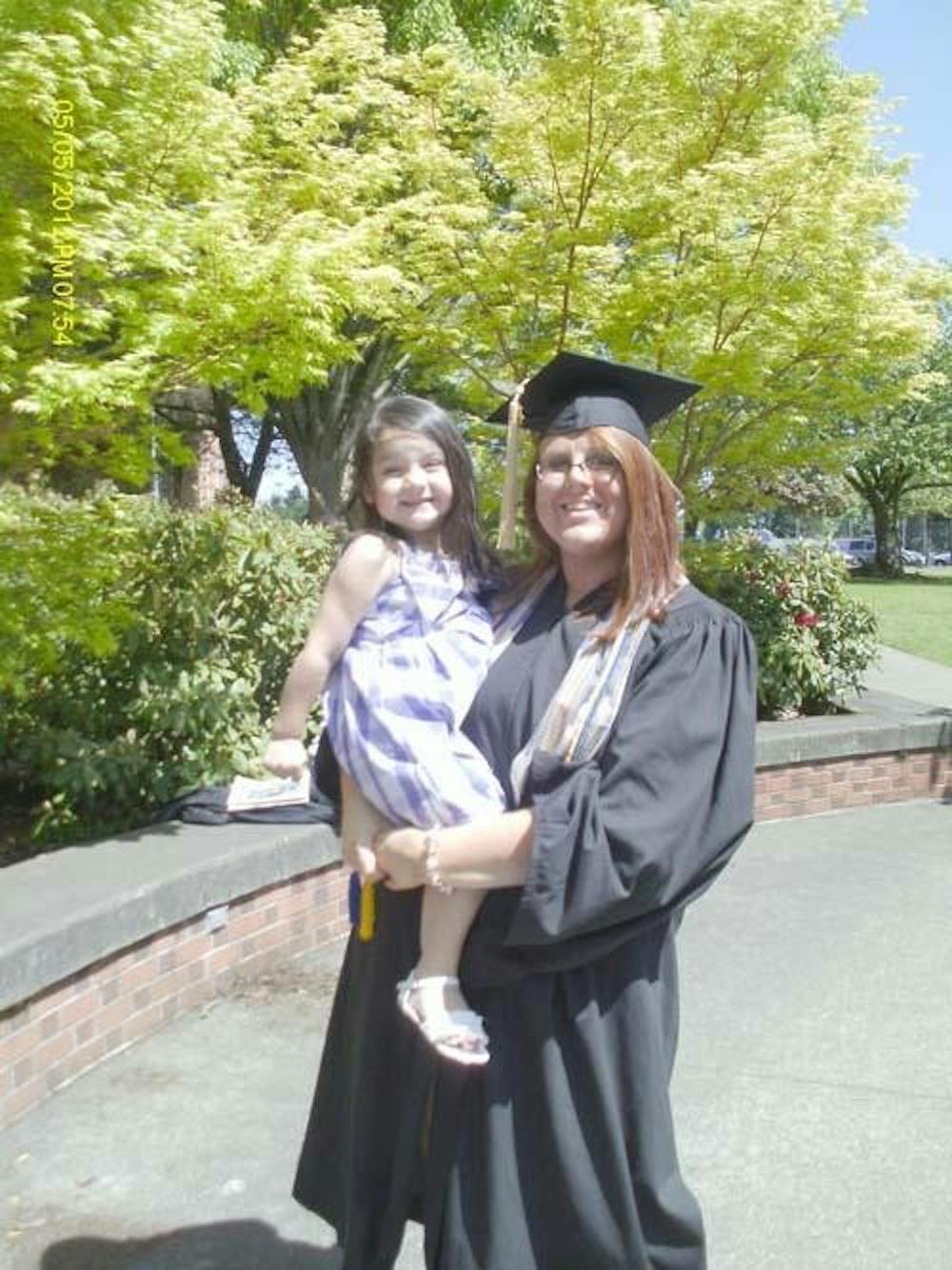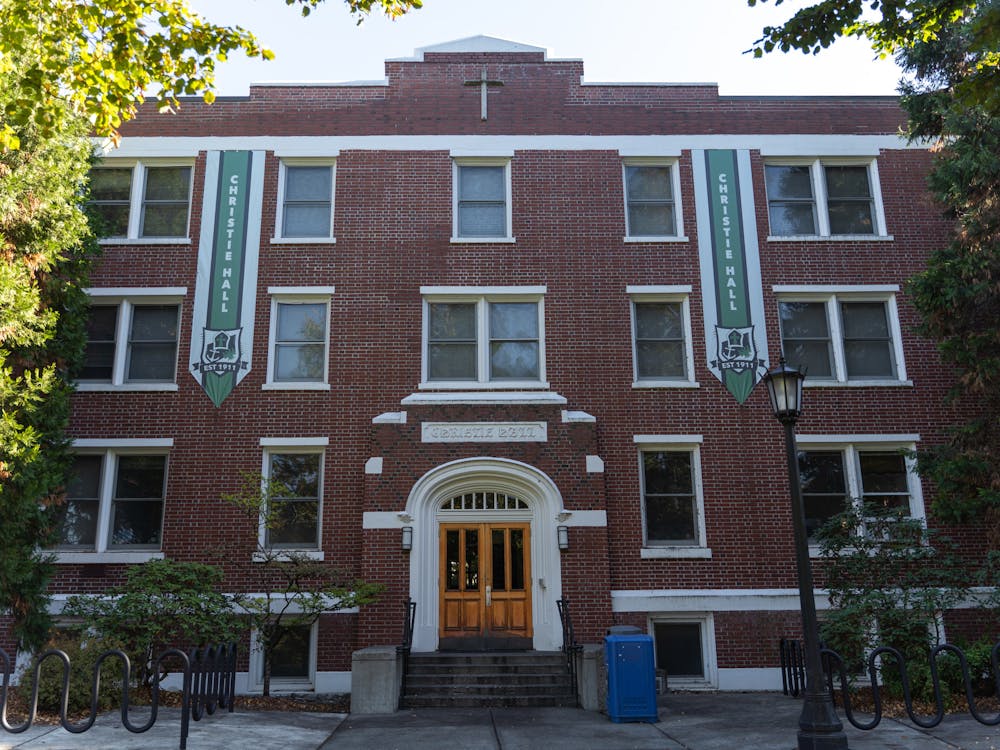Class of 2011 alumna Nichole Lehr became pregnant April of her freshman year at UP. Her daughter Gabby attended Lehr’s graduation ceremony after she earned her degree. Lehr said it was hard to find on- campus resources while she was pregnant. (Photo courtesy of Nichole Lehr)
By Lydia Laythe, Staff Writer laythe16@up.edu
A freshman girl walked across the academic quad, her bright red hair tied back in a messy bun and her belly protruding in front of her. Students gave her dirty looks as they past, judgment and condescension visible on their faces. But she didn't care. She looked right back at them, raised her eyebrows in defiance and said "What are you looking at?"
In April of her freshman year, 2011 alumna Nichole Lehr discovered she was pregnant. According to Lehr, there were no visible support programs from the University, so she sought support from professors she trusted.
"It was all really overwhelming and no one seemed to have concrete answers," Lehr said.
Now, a committee of faculty and staff are working to increase awareness of the support the University offers and to help students who become pregnant while at UP.
Building a formal system
Fr. Gerry Olinger, Vice President for Student Affairs, who brought together the committee, said the mission of the University is the driving force.
"As a Catholic university, it's a part of our mission: providing service and assistance for students, and to be able to encourage an ethic of life," Olinger said. "If we're prepared to stand up as pro-life in the political arena, it's also important for us to be able to put our resources to really encourage that here at home."
Olinger asked Deana Julka, social and behavioral sciences professor, to head the committee. The group does not have an official title yet, but Julka referred to the committee as the pregnancy and family support group.
Julka said they have put together a rough draft of a pamphlet, which includes information about on- and off-campus resources for pregnant students. Olinger said there will be a webpage with similar information.
Julka said pregnancy on campus is more prevalent than people realize. She said this lack of awareness is because there is no formal support system.
"I've had, almost on a monthly basis, people come in and talk in a very informal way, trying to get support," Julka said.
Olinger wants to make it easier for pregnant students to ask for help.
"I would never want students to think they couldn't come forward," Olinger said.
Olinger wants to connect five fundamental pieces through the committee: physical needs, emotional needs, off-campus support, academic resources and personal support.
The Health Center cannot provide all the necessary services for pregnant students, such as daycare or prenatal care, so the committee also wants to create a formal system to match students with external services that meet their needs.
Olinger also wants to improve academic resources to help students navigate the system regarding medical leave, lightened course loads or taking a semester off. Encouraging students to continue their education is one of the committee's top priorities.
Lastly, Olinger hopes to create a support system of faculty and staff to serve as a more personal resource for pregnant students.
Pregnant at UP
Lehr continued to attend school through the fall semester of her sophomore year but took the spring semester off after her daughter Gabby was born. When she returned to UP, Lehr had trouble registering for classes.
After the confusion was fixed, Lehr was able to finish her degree in nine semesters. During her time at UP, Lehr said her experience was for the most part positive, but resources were not easily accessible.
"Most of my teachers were really supportive," Lehr said, "I was connected with no resources."
Lehr felt part of the problem was the lack of dialogue surrounding the topic of pregnancy.
"[Pregnancy] happens to lots of people," Lehr said. "It's silly to think it's not happening."
Health Services Director Paul Myers, who is on the new committee, attributes part of the problem to misconceptions students have.
"The issue is the presumptive rumor mill - because it's a Catholic institution, you're going to get kicked out of school," Myers said. "That's just never been true, at least not in the last 50 years."
Julka hopes the committee will create a more supportive atmosphere for pregnant students.
"When anybody feels alone, or feels like there's no system in place, they feel even more alone and are more likely to withdraw," Julka said. "If there is this group out there, it lets people know right away: 'I'm not alone.'"
Myers said his interactions with students motivate him.
"Just seeing the anguish brings home that it's not an abstract thing," Myers said. "It's very real."








